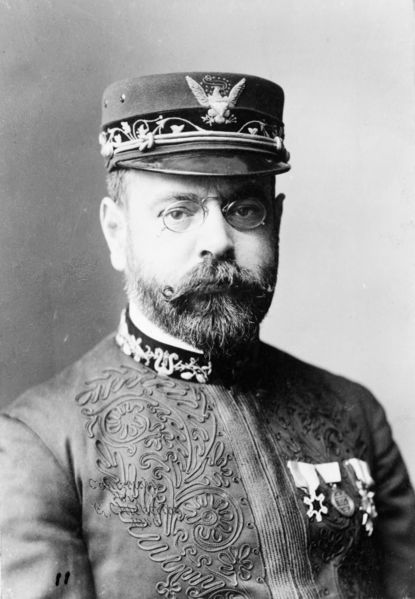
For the Fourth, Remembering the Concert Band
John Philip Sousa. Independence Day is just around the corner, and time was when the venerable American institution of the concert band would play a free program of patriotic music for folks to enjoy while taking part in the holiday.
It doesn’t look like there are too many such programs around this year, though there are a surprising number of community concert bands in the area, and that’s not including the wind ensembles associated with the colleges and the high schools. It always bears repeating that the original American concert ensemble is the symphonic band, not the symphony orchestra, most of which developed in the latter decades of the 19th century (except the New York Philharmonic, which is older).
But up to the Civil War and for years afterward, if you wanted to get in touch with the classics, and you lived in a town without major musical institutions – and that would be most of the United States – you went to a park or the gazebo in the town square, or a public auditorium, to hear a concert of band music. There, along with things such as selections from Gounod’s Faust, you could hear patriotic marches, sentimental songs, instrumental soloists, and lighter fare such as bits from popular musical theater shows of the day.
John Philip Sousa, whose 1897 march The Stars and Stripes Forever is one of the best-known pieces of American music of any kind, toured across the country for many years until the Depression and Sousa’s failing health (he died at age 77 in 1932, while on the road), not to mention radio, jazz, and movies with sound, pushed the band off the mainstage of the nation’s cultural life.
Some research into Sousa’s touring schedule in a recent documentary biography of the band shows he didn’t make it to Florida all that often, though he was at Miami’s Central School for two shows on Valentine’s Day in 1922. That followed a show the day before in Key West, where the band played after a six-day, seven-concert run in Havana. A concert program from a show in Birmingham, Ala., a few days later shows plenty of Sousa (several marches, a suite and a fantasy) on the bill of fare, along with Mendelssohn’s Rondo Capriccioso in an arrangement for xylophone solo, two movements of a Vieuxtemps concerto played by a violin soloist with the band, and the inevitable cornet soloist (John Dolan, in this case) playing J.B. Arban’s Carnival of Venice, still a staple for brass players even today.
Alfred Reed.
For July Fourth, I usually like to have a good all-American classical playlist on hand, and this year I might just listen to a whole lot of band music. One of the most eminent of contemporary band composers was Alfred Reed (1921-2005), who spent nearly 30 years in the music department at the University of Miami before retiring in 1993.
Reed’s last recording (Alfred Reed Live! Volume 6), issued by Boca Raton’s Klavier label, features Reed in Japan, conducting the Senzoku Gakuen Symphonic Wind Orchestra of Tokyo in a July 2004 concert of music including his Symphony No. 3 and two pieces (Rosalind in the Forest of Arden and Twelfth Night: A Musical Masque) inspired by Shakespeare. It’s beautifully written, attractive music by a masterful American composer writing for the kind of ensemble that has been central to the musical education of countless Americans for a century and a half.
It seems like a good way to mark this most joyous of all our national holidays.
Recent Content
-
Artsarticle ·
-
Artsarticle ·
-
Artsarticle ·


